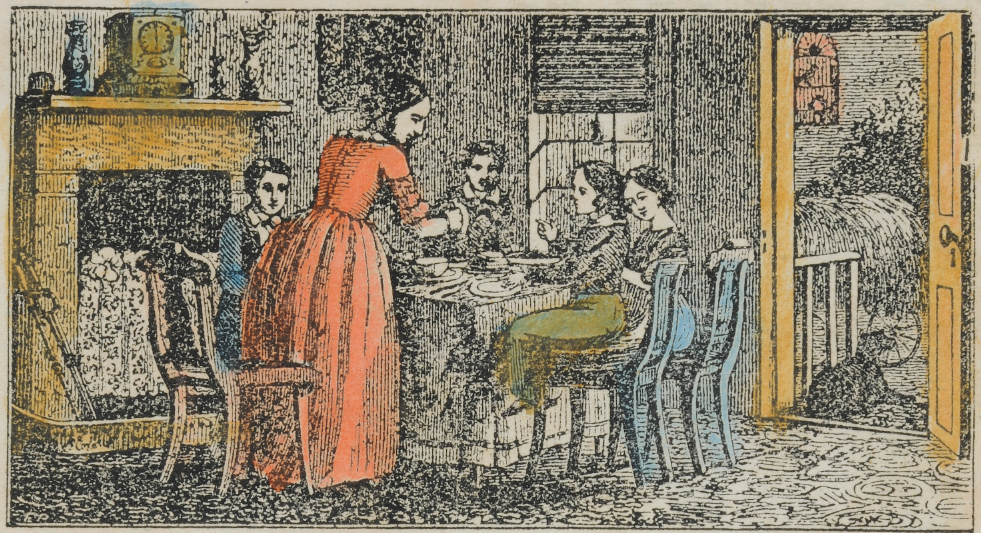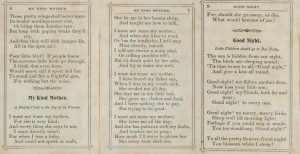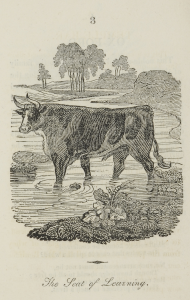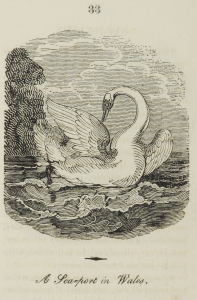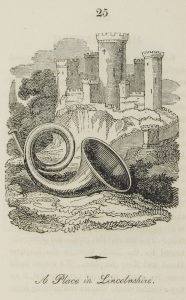Our collection of chapbooks is divided into several categories by subject matter, one of which is “Instructional.” This category contains all sorts of chapbooks imparting good manners and religious lessons to young readers, through songs, poems, and moral tales. The lessons range from charity to industriousness, with a good dose of piety thrown in. One of the main themes throughout each work, however, is obedience, both to God and parents.
So, in honour of Mother’s Day this weekend, and in celebration of my own mother, who is indeed very kind, I offer up this little instructional poem found in “Pleasing Poetry and Pictures: For the Mind and Eye,” from 1849.
My Kind Mother.
A Dutiful Child is the Joy of its Parents.
I must not tease my mother,
For she is very kind ;
And every thing she says to me,
I must directly mind ;
For when I was a baby,
And could not speak or walk,
She let me in her bosom sleep,
And taught me how to talk.
I must not tease my mother;
And when she likes to read,
Or has the headache, I will step
Most silently, indeed.
I will not choose a noisy play,
Or trifling troubles tell;
But sit down quiet by her side,
And try to make her well.
I must not tease my mother;
I have heard my father say,
When I was in my cradle sick,
She tended me all day.
She lays me in my little bed,
She gives me clothes and food,
And I have nothing else to pay,
But trying to be good.
I must not tease my mother;
She loves me all the day,
And she has patience with my faults,
And teaches me to pray;
How much I’ll strive to please her
She every hour shall see,
For, should she go away, or die,
What would become of me !

